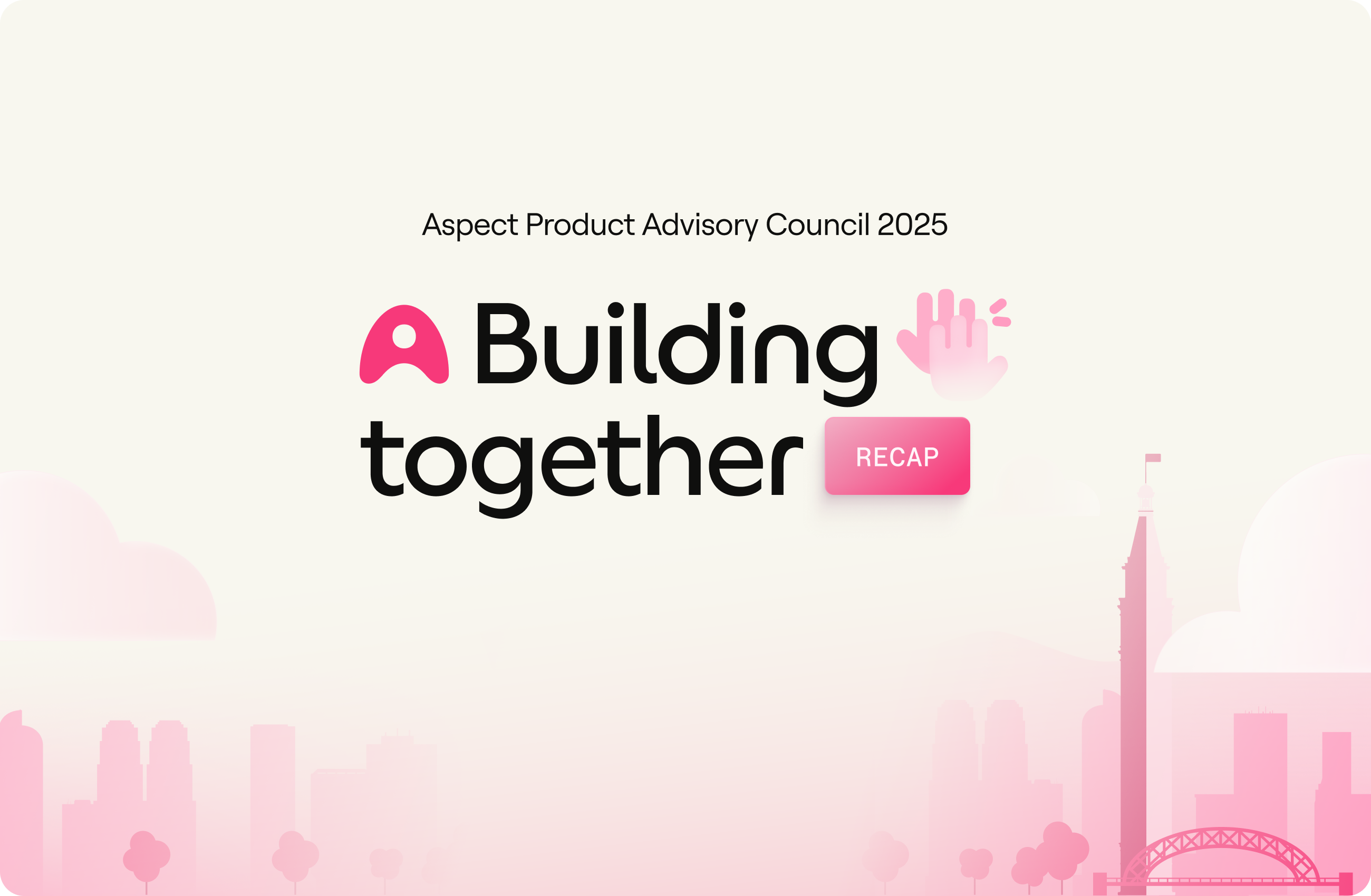Welcome back to “Ask Aspect”, a series where we sit down with our WEM experts and gather insights from their array of in-depth experiences in the contact center and workforce space. We kicked off this series by chatting with tenured workforce pro Alec Bowman-Clark and today we’re having a little chat with workforce wizard, Colin Whelan.
With more than 33 years of experience in contact centers and around 30 years in workforce planning, I think it's safe to say Colin Whelan truly is a workforce wizard. His professional title though is Senior Director of Customer Success at Aspect and he’s worked with enterprise-level customers in the finance sector for decades.
We took a few minutes to chat with Colin about his thoughts surrounding artificial intelligence and current changes to workforce strategies. Some answers have been edited for clarity, but don’t worry—you’re still getting all of the expert knowledge you’re looking for.
Q: Is it fair to call you a workforce wizard, Colin? I don’t want to oversell here.
A: Maybe. I’m worked in industry bodies proving best practice in planned and operations, AND I’m the author of a degree in Contact Center Planning and Management at the University of Ulster. So, I’d say I’m a massive WFM geek.
Q: You’ve been in workforce for a while and have probably seen your fair share of buzzwords. AI is the new kid on the block these days. How do you feel about AI becoming a hot topic in workforce?
A: The current trends in our industry and our organizations are really leaning into buzzwords, and AI is one that makes me itch.
Let’s be very clear. AI does not exist. Everyone marketing brands that have AI in their corned beef or in their TV, it’s not true. Don’t get caught up in the buzzwords.
There are several branches of of AI but in workforce, most people are talking about processes that already exist. Let’s break it down into machine learning, deep learning, natural language processing, robotics, fuzzy logic, and expert systems.
Machine learning is just using intelligent algorithms with lots of data, that’s what Aspect workforce management tools already do. Our workforce management looks at the data, goes through our proprietary algorithms to produce an output, which gives the customer informed information. Information that is actually really hard to get manually.
Natural language processing (NLP) is used in interactive voice systems (IVRs) or when we use speech analytics. Robotics is fundamentally an IVR, it’s following algorithms. Expert systems are designed to do unique and specific jobs and do those very well, just like tools in Aspect Workforce. We’re not quite at deep learning yet because we don’t push years of data into forecasting algorithms. And fuzzy logic actually goes against what we do because we're trying to give people control and the ability to make decisions based on the customer, the colleague, or the company's requirements. Though, some fuzzy logic comes into play when we start talking about forecasting for back office operations.
But we already use these processes to provide unique and trusted outputs. So we don't need to necessarily call it AI.
Q: So in a sense, AI already exists in workforce tools. If that box is checked, what are WEM customers really looking for in their tools? What makes them happy?
A: People want security. WEM customers want the confidence and security in the information provided during decision making processes. Customers need to know that they can deliver on objectives in a flexible way. So tools need to be agile enough to provide solutions that fit into a company’s strategy and culture.
Q: Are there any cultural shifts in workforce that you’ve noticed over the year?
A: What we're seeing at the moment in the trends from the operational side is the move towards the colleague and the colleague agenda. Many people mention wanting preference based scheduling but what they really want is preference based scheduling with rules and equity. This is what we’re aiming to do with Aspect’s new workforce experience application.
Q: Is work-life balance taking a front seat in contact center culture and strategies?
A: Millennials and Gen Z in contact centers want to work from home, they want to be flexible, they want benefits from it. The job needs to fit around them rather than them fitting around a job.
When I started in the call center, I was told when to do something, when to be there, and how many breaths of oxygen I was allowed to take in between calls. It was strict. Now, we’re at a completely other end of the industry with organizations rarely being that strict. We’ve moved towards colleague-focused strategies because it’s hard to recruit, engage, and keep people onboard in contact centers.
Between interviewing, onboarding, and training, it can cost thousands of dollars to recruit someone for a contact center role. Somewhere between $3,000-5,000. If we can help people stay in their role even just 2 to 3 additional months, it doesn't sound like a lot but the financial impact of colleague-focused agenda, the cost savings are huge.
Interested in hearing more from our team of WEM experts? Stay tuned for the next installment of "Ask Aspect" with our team. In the meantime, learn more about how automation and AI play a role in workforce management tools.

















